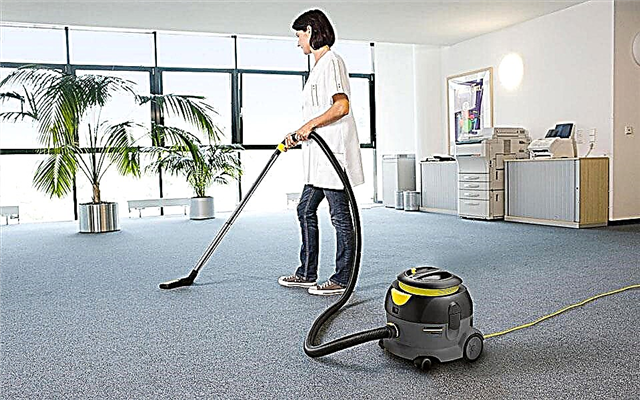If there is no problem with something in Russia, it is with the work of sociologists. Through the efforts of VTsIOM and other organizations, sociological polls are regularly conducted in our country, and become a topic of debate, indignation, and sometimes jokes.
The end of the year is a time to take stock. BASETOP has collected for you the most interesting opinion polls of 2018-2019. Perhaps you even participated in one of them.
10. Russians do not trust the work of sociologists
 Year of the survey - 2018
Year of the survey - 2018
Who conducted the survey: VTsIOM
Despite the fact that many citizens willingly participate in opinion polls, there is no faith in the veracity of their results in Russian society.
37% of 1,600 Russians surveyed do not believe that the results of public opinion polls reflect the true opinions of the people. In 2017, the number of distrustful people was lower - 29%, and in 2016 - only 22%.
However, even “Thomas unbelievers”, namely 91%, admit that opinion polls need to be conducted.
- 78% of respondents said that such polls help the authorities to learn about the mood in society.
- And 52% believe that the results of the polls will be useful to scientists studying society.
- Also, 53% of respondents are sure that the polls are fabricated and published in the media in order to manipulate public consciousness.
9. Election of the President of Russia
 Year of the survey - 2018
Year of the survey - 2018
Who conducted the survey: Public Opinion Foundation
In February 2018, experts of the non-profit organization FOM interviewed 3,000 Russians about the upcoming (at that time) presidential election in the Russian Federation.
- 63.5% of respondents said that if they go to the polls, they will vote for the current president of the Russian Federation, Vladimir Putin
- 7.3% of respondents were then ready to vote for Vladimir Zhirinovsky, the leader of the LDPR
- and 6.2% of the respondents were for the candidate from the Communist Party, Pavel Grudinin.
- the same number - 6.2% did not plan to go to the polls
- and 13.3% of respondents did not give an exact answer.
Well, now from 2019 we see better that the number of votes cast for Vladimir Putin turned out to be even higher than shown in the survey - 76.69%.
8. Three main problems of Russia
 Year of the survey - 2018
Year of the survey - 2018
Who conducted the survey: VTsIOM
You think it's vodka, fools and roads? But no. According to the respondents, three main Russian troubles:
- poor state of the healthcare system - this is the opinion of 28% of respondents;
- problems in the field of education - said 23% of respondents;
- general economic recession - say 21% of respondents.
These three problems have pushed into the background even lower living standards and wages. Apparently, the inhabitants of our country are getting used to living poorly, or follow the principle of "were not rich, there is nothing to start." If in 2017, 26% of respondents cared about aspects of wages and living standards, then last year - only 14%.
7. The main claims of Russians to the government
 Year of the survey - 2018
Year of the survey - 2018
Who conducted the survey: Levada Center
Over 50% of respondents interviewed by Levada Center specialists in December 2018 would like the Russian government to resign. And that's why:
- 57% blame the authorities for not solving problems with rising prices and falling real incomes.
- 46% believe that the government cannot provide people with jobs.
- 43% said that the authorities cannot socially protect the Russians.
- And 33% think that those in power cannot cope with the economic situation.
- 30% of respondents said that the government has no economic development strategy - 30%.
- And only 7% have no complaints against the country's authorities.
6. What Russians fear the most
 Survey year - 2019
Survey year - 2019
Who conducted the survey: Levada Center
Most of all, Russians are afraid of the illness of relatives and children. Thus, 61% of respondents answered the Levada Center researchers.
In second place is the fear of “as if there was no war” (41% of respondents fear this), and the fear of poverty (31%) is in the top three most frightening Russians.
The terrible top 5 also includes fear of natural disaster (22%) and fear of losing accumulated savings (18%). A fear of job loss tormented 16% of respondents.
5. The more educated the father, the stronger the child is interested in learning
 Survey year - 2019
Survey year - 2019
Who conducted the survey: Institute of Applied Economic Research, RANEPA
In order to find out whether it is interesting for children to study at school and how good educational programs are, experts from the RANEPA interviewed 2247 teachers and 2220 parents from the Yaroslavl, Samara and Pskov regions.
- It turned out that most parents of first-graders (46.4%) are completely satisfied with the educational program of their school. And the percentage of first-graders interested in studying is the highest - 45.9%.
- But among the parents of five-graders, the percentage of those satisfied with the curriculum is already less - 39.1%.
- And least of all (13%) parents are satisfied with the educational program, according to which their children study from the 6th to the 9th grade. But from the 9th to the 11th grade, children do not need to be encouraged to study, because “on the nose” are the OGE and the EGE.
It is curious that 73.6% of educators believe that the content of educational programs needs to be changed.
Researchers at the RANEPA note another interesting fact - a direct relationship between the level of education of the father and the child's interest in learning. But the level of education of the mother for some reason does not affect the motivation of the child in a similar way.
4. Top cities for quality of life
 Survey year - 2019
Survey year - 2019
Who conducted the survey: Financial University under the Government of the Russian Federation
Where are those happy cities whose residents, at the suggestion of Santa Claus to relocate them to another place, will answer: "Do not, are we okay here?" This was found out by experts of the Financial University under the Government of the Russian Federation.
They asked residents of 78 Russian cities with a population of over 250 thousand people to evaluate their city in a number of ways. In each city, at least 600 people were interviewed.
As a result, Kazan became the best city in Russia in terms of quality of life.
3. Cats versus dogs
 Survey year - 2019
Survey year - 2019
Who conducted the survey: VTsIOM
Let Russia not be one of the richest or happiest countries in the world. But then, in terms of the number of families in which there are pets, our country literally hit the top ten. According to VTsIOM, the number of cat and dog owners in Russia reaches 68%.
Moreover, cats were preferred by 57% of people surveyed by VTsIOM experts, while in Latin America the situation is the opposite - there are 60% of “dog lovers”.
- Pets are often brought up by people aged 18 to 24 years - 76%.
- Also, people aged 35 to 44 years old - 72% willingly give their love to a cat or dog.
- Slightly less often are those who are from 45 to 59 years old (71%).
- And most willingly take in the house of a pet residents of Russian villages (82%).
2. Most often, residents of St. Petersburg agree to sex at the first meeting
 Survey year - 2019
Survey year - 2019
Who conducted the survey: marketing agency Zoom Market
In second place in the top 10 most interesting opinion polls in Russia is a rather provocative poll. Respondents (as many as 3,000 people gathered) were asked about whether they allow sexual contact on a first date, and whether their date often ended in sex.
And it turned out that the most liberated in this regard Russians gained only 5%, while 94% of them were men.
Most often, residents of the Northern capital are ready for sex on a first date, followed by Voronezh and Muscovites. Do not mind also quicker to move the acquaintance from vertical to horizontal position residents of Perm, Krasnodar, Saratov, Omsk, Novosibirsk, Sevastopol and Bryansk. And least of all, citizens of Kazan and Makhachkala do this on a first date.
1. Young people are ready to flee from Russia
 Survey year - 2019
Survey year - 2019
Who conducted the survey: Levada Center Foundation
About 53% of young people aged 18 to 24 are ready to leave Russia forever. Over the past 10 years, the rate of potential “aliens” has doubled. On the one hand, this speaks of the idealization of emigration (well, where we are not) and the cosmopolitanism of young people, but on the other, the serious shortcomings of the socio-economic policy that the state is currently pursuing.
Indeed, it was socio-economic factors that the majority of respondents named as the main incentive to leave. Young people do not see stability in the economy, and they think that not in Russia, but abroad they will be able to give their children a well-fed, well-off and protected life.
Another third of respondents named the political factor as the main incentive.












